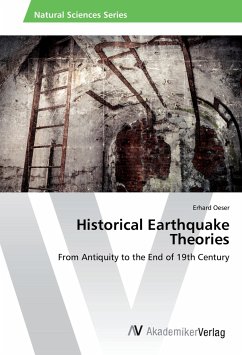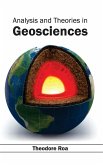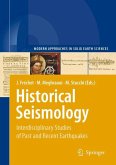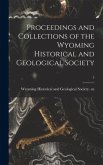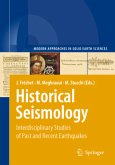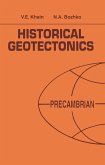Reports for more than 3000 years about destructive earthquakes show that the really horrible aspect of these phenomena was not only the big damage but rather their intensity and unpredictability. Aristotle was the first to deliver a rational theory of earthquakes. While the period between the middle of the 18th century and the middle of the 19th century was governed by the question of the causes of earthquakes, the second half of the 19th century produced a paradigm shift in earthquake research. It was Mallet's physico-mechanical theory of earthquake waves without mass transport, based on the analogy of sound waves and water waves, that first made a clear distinction between the two problem and explanation areas. A consequence of the wave theory of earthquakes, was the theory of tectonic earthquakes.

